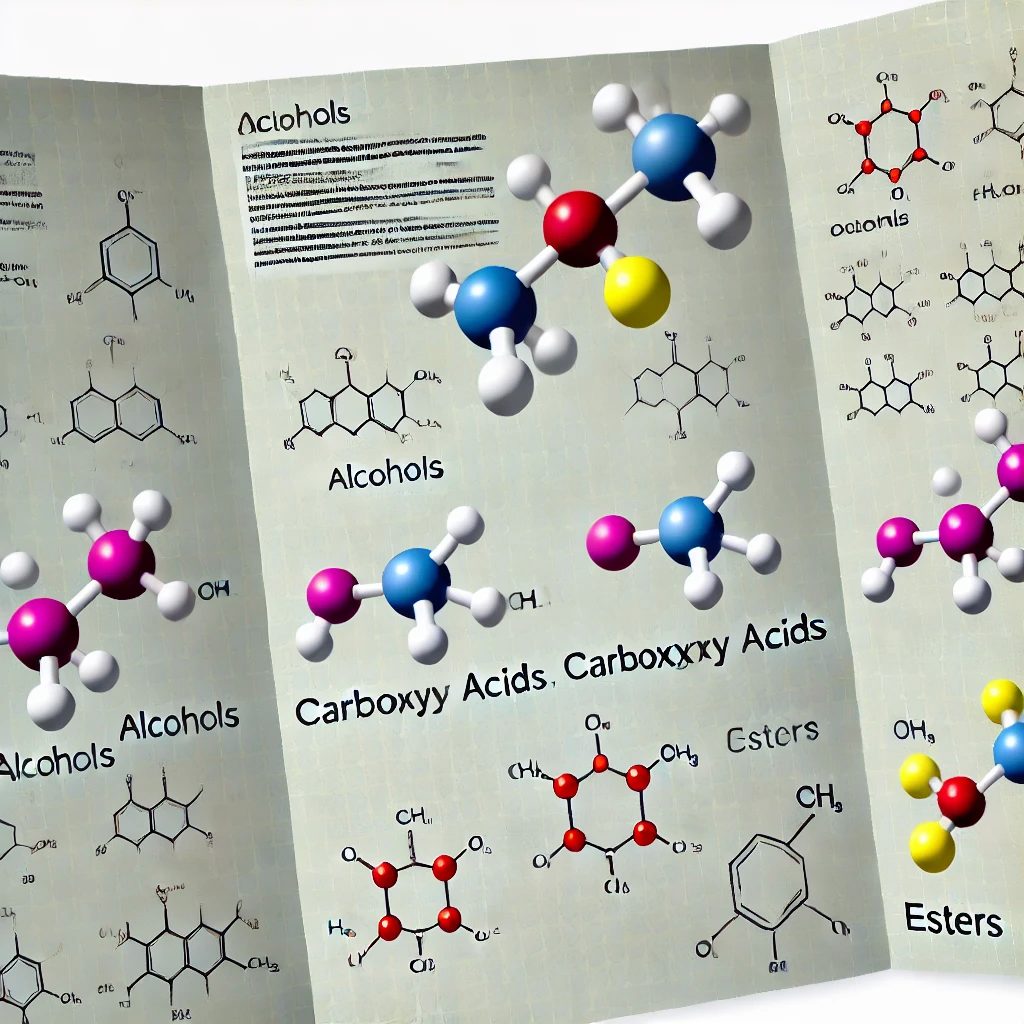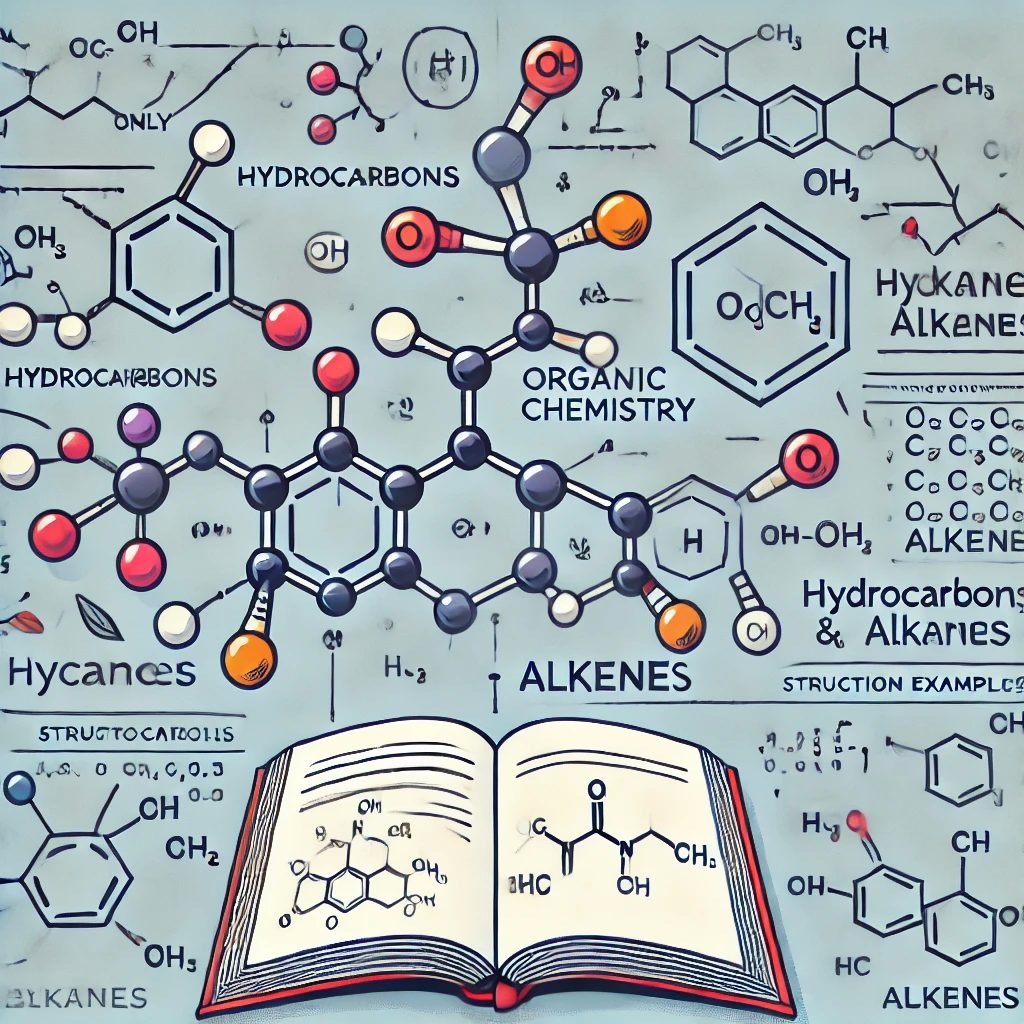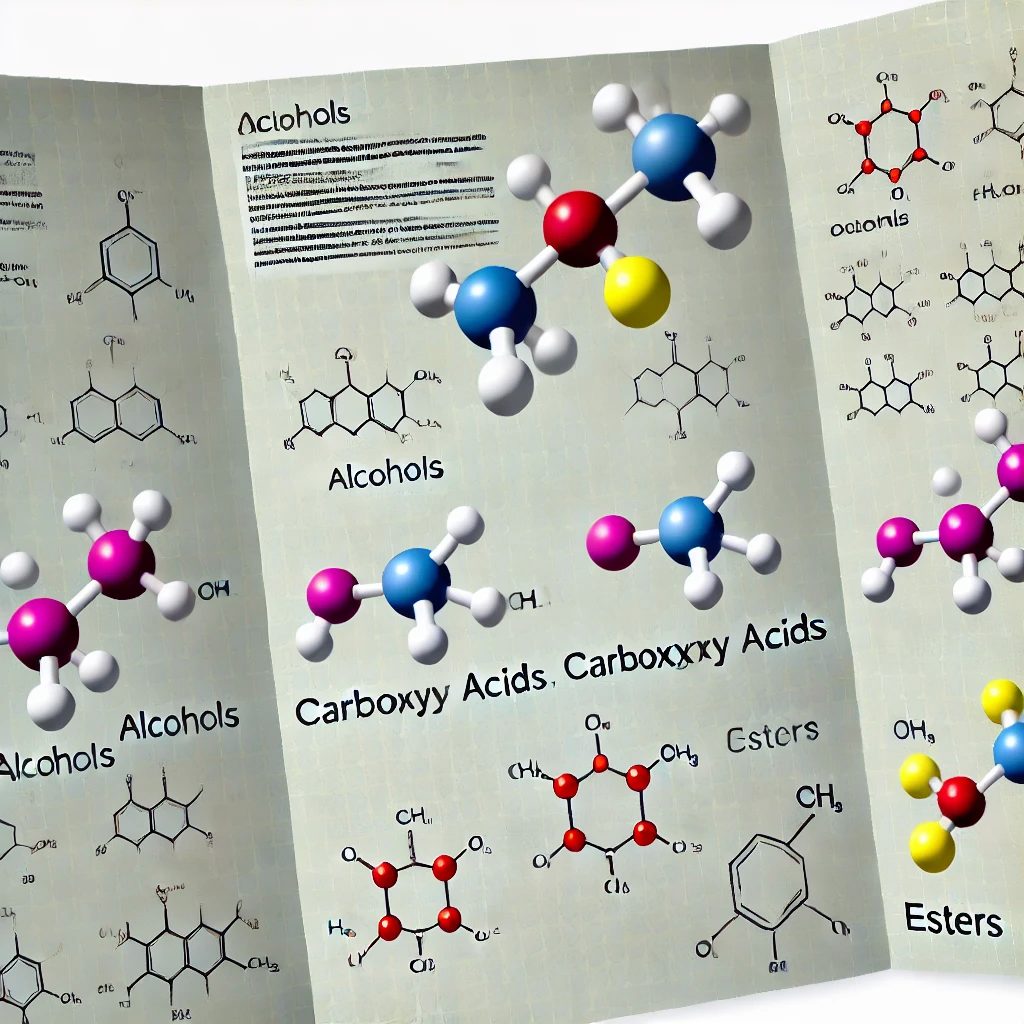Advanced Concepts in IGCSE Organic Chemistry, as covered in the IGCSE syllabus, not only lays the foundation for understanding carbon-based compounds but also prepares students for more advanced chemistry concepts. As students progress, they encounter more intricate aspects of Organic Chemistry, which delve into the complexities of bonding, reactions, and the synthesis of larger molecules. This article explores advanced topics such as isomerism, polymerization, organic biochemistry, and the environmental impact of organic substances.
Isomerism in Organic Chemistry
“Advanced Concepts in IGCSE Organic Chemistry”
Advanced Concepts in IGCSE Organic Chemistry Isomerism is a concept where compounds with the same molecular formula have different structural arrangements, resulting in different chemical and physical properties.
- Structural Isomerism: In this type, the atoms are arranged differently. For example, butane (C4H10C_4H_{10}C4H10) has two isomers: n-butane and isobutane, each having a different structure.
- Geometrical (Cis-Trans) Isomerism: Commonly seen in alkenes, geometrical isomerism arises from the restricted rotation around the carbon-carbon double bond. For example, in but-2-ene, the two methyl groups can either be on the same side (cis) or opposite sides (trans).

Advanced Concepts in IGCSE Organic Chemistry Polymerization: The Chemistry of Plastics
Polymerization is essential in industrial applications, particularly for creating plastics.
- Addition Polymerization: In this reaction, alkene monomers join to form long-chain polymers. Ethene (C2H4C_2H_4C2H4) forms polyethylene, a common plastic. Similarly, propene (C3H6C_3H_6C3H6) produces polypropylene.
- Uses of Polymers: Polymers are vital in daily life, from packaging to textiles. However, the rise in plastic waste has led to environmental issues, highlighting the need for biodegradable polymers.
Organic Chemistry in Biochemistry
Organic Chemistry forms the basis for biochemistry, which studies the organic molecules essential for life.
- Carbohydrates: Organic compounds like glucose are essential for energy. More complex carbohydrates, such as starch and cellulose, are made up of glucose monomers.
- Proteins: Proteins consist of amino acids, which include amine and carboxyl groups. Proteins function in enzymes, hormones, and cell structure.
- Lipids: Lipids are long hydrocarbon chains used for energy storage, insulation, and cell membranes.
Environmental Impact of Organic Compounds
While organic compounds are essential, they can also negatively impact the environment.
- Greenhouse Gases: Methane (CH4CH_4CH4), an organic compound, is a potent greenhouse gas that contributes to climate change.
- Plastic Pollution: The widespread use of non-biodegradable plastics has created severe pollution issues, affecting marine life and ecosystems.
- Organic Pollutants: Organic pollutants, such as pesticides, can accumulate in ecosystems and affect the food chain.
The Role of Organic Chemistry in Medicine
Organic Chemistry plays a crucial role in drug design and synthesis, impacting healthcare worldwide. Advanced Concepts in IGCSE Organic Chemistry
- Synthesis of Medicines: Many medicines are organic compounds. Aspirin, for example, is synthesized by esterifying salicylic acid.
- Antibiotics: Organic compounds like penicillin revolutionized medicine by providing effective treatments for bacterial infections.
- Vitamins and Hormones: Organic compounds also include vital substances like vitamins and hormones, which regulate various bodily functions.

Conclusion Advanced Concepts in IGCSE Organic Chemistry
Organic Chemistry, especially as studied in the IGCSE syllabus, is an essential field that influences multiple aspects of life and industry. From understanding hydrocarbons and polymers to exploring the environmental challenges posed by organic compounds, students learn how chemistry shapes the world. Mastering these concepts opens up possibilities for tackling pressing global issues, such as climate change and plastic pollution, while also contributing to innovations in medicine and biochemistry. Advanced Concepts in IGCSE Organic Chemistry
By studying Organic Chemistry, students not only prepare for exams but also develop a deeper appreciation for the molecular mechanisms that govern the world around us. Advanced Concepts in IGCSE Organic Chemistry
These external links provide further resources and reading materials for students to dive deeper into the various topics covered in this article. Advanced Concepts in IGCSE Organic Chemistry





No comment